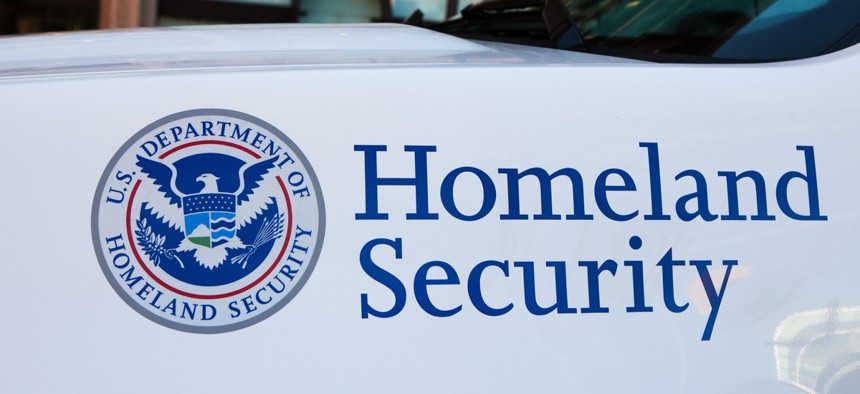GAO: DHS Needs More Oversight for Service Contracts

Mark Van Scyoc/Shutterstock
An appropriate balance of staff is needed to ensure contractors don’t end up making policy in mission areas including cybersecurity, auditors said.
The Homeland Security Department failed to create safeguards to prevent contracting out inherently governmental work, which could lead to loss of control over the department’s mission, according to the Government Accountability Office.
“Our report found that DHS needs an approach to consistently identify and document the federal personnel needed to oversee certain service contracts, and the types of oversight tasks those federal personnel should be performing,” GAO’s Marie Mak, author of a new report out on the issue told Nextgov. “Without additional guidance on these oversight responsibilities, DHS cannot ensure that contractors are not performing functions that are critical to its missions, like drafting policies or determining federal priorities.”
The report, which GAO published Thursday, came at the behest of Sen. Ron Johnson, R-Wisc., chairman of the Homeland Security and Governmental Affairs Committee, and counterpart Rep. Bennie Thompson, D-Miss., who chairs the same committee in the House.
It’s the most recent in a line of reports around the enforcement of a 2009 Presidential Memorandum and subsequent Office of Management and Budget directives defining “inherently governmental functions” as those that are intrinsically linked to the public interest and should therefore only be performed by federal employees.
The reports also call for greater transparency of contracted services to Congress.
A 2011 letter from OMB’s Office of Federal Procurement Policy identified categories of service functions that agencies are allowed to contract for, but that require “heightened management attention, as they pose a risk to the government losing control of either its responsibility to perform inherently governmental functions or its mission and operations.”
For DHS, that includes information technology and cybersecurity.
DHS has increasingly relied on service contracts to do its work. Between 2013 and 2018, there was a 40% increase in such contracts.
“DHS obligated about $2 billion, or 13 percent of its total fiscal year 2018 service contract obligations, towards various information technology and telecommunications services—such as satellite services and hardware and software maintenance,” the report reads. “This was among the top 5 services the department contracted for that year.”
GAO made six recommendations for the secretary of Homeland Security, including instructing the chief procurement officer to document factors used in waiving reviews of certain contracts under a “Procurement Strategy Roadmap” the department uses to guide its acquisitions.
DHS disagreed with four of the recommendations, arguing for example that the office of the chief procurement officer’s “decision to waive a Procurement Strategy Roadmap review does not mean that the Chief Procurement Officer did not consider acquisition risks.”
GAO countered saying the failure to document the factors considered would lead to inconsistent implementation and put the department at risk of not learning from its mistakes.






